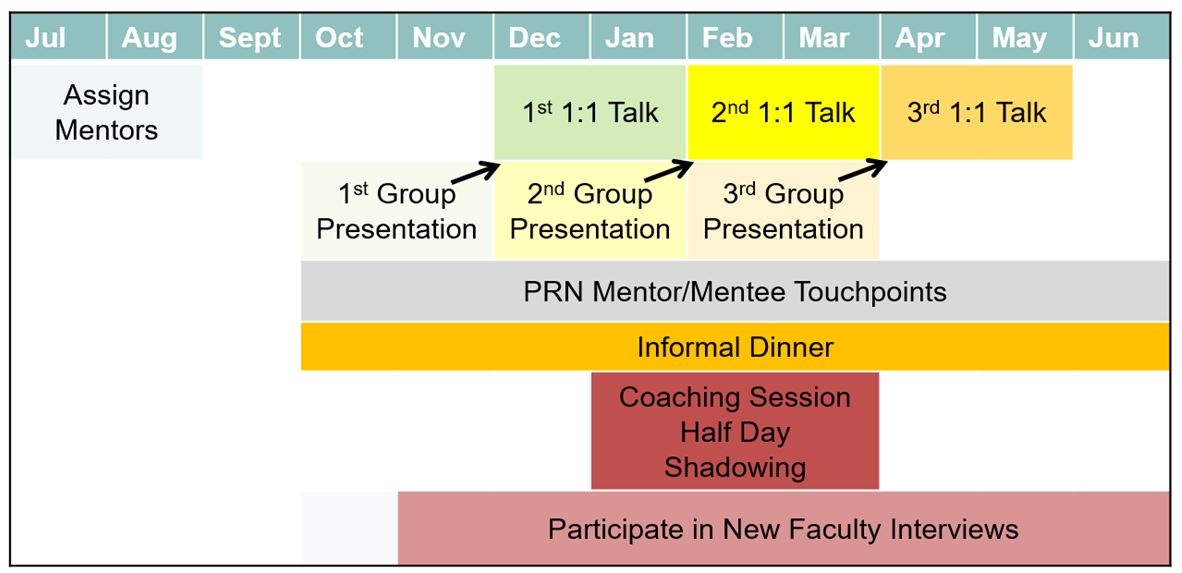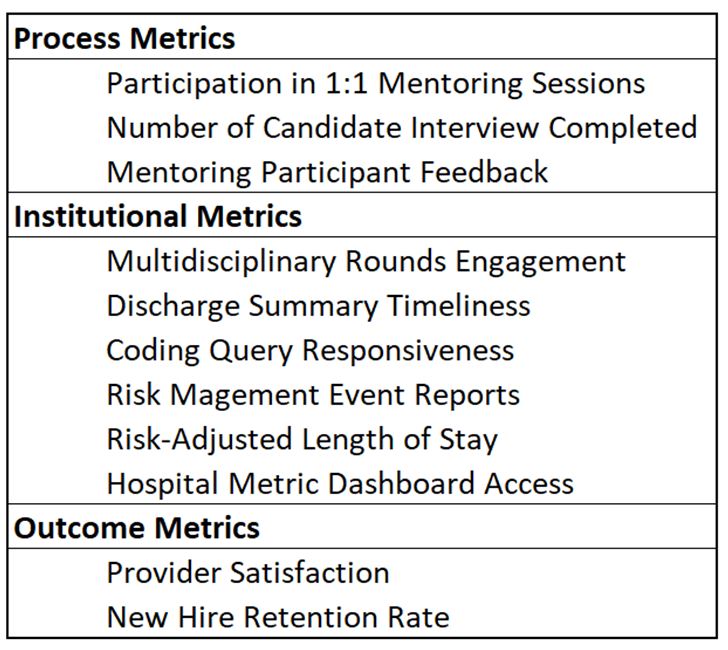Background: Onboarding for new hospitalist attendings tends to focus heavily on local systems practices, such as the electronic health record, how to engage consultants, and billing in order to ensure clinical functionality. This orientation tends to be impersonal and deficient in the essential skills for a long and fulfilling career in hospital medicine. The importance of providing both clinical and moral support to new hospitalists is increased given the evidence of rising level of physicians feeling isolated (1) and even data suggesting first year hospitalists have higher patient mortality rates (2). The process can be especially hindered when the volume of new providers is large, as program leadership has a finite bandwidth to engage with each of these new attendings in a mentorship role.
Purpose: The purpose of the project is to provide a longitudinal relationship between a new hire hospitalist and an experienced provider (Peer Mentor) to offer clinical mentorship and create a framework for dissemination of key information through a structured mentorship program.
Description: The program is being implemented in a large, single institution, academic hospitalist group, who had a 50% expansion of providers in less than two years. The initial concept was created based on informal feedback from current hospitalists, as well as support from institutional leaders in medical education. The primary step of the intervention was implemented in July 2019 with the pairing of a new hire hospitalist with a Peer Mentor. This Mentor is an experienced hospitalist who is primarily clinical, currently meeting group practice standards, and is actively engaged in committee work. Many of the pairs were chosen to align their clinical and academic interests. The expectations of the Mentors are to be available for questions for the new hire, discuss challenging clinical cases, meet at least 3 times on a bimonthly schedule to discuss prearranged topics, and have at least 1 informal dinner meeting, reimbursed by the group (Figure 1). The personal mentoring session will be supplemented by three group didactic sessions by senior leadership. The topics covered at the didactic sessions will include: communication, everyday leadership, hospital financial literacy, practice dashboards, conflict management, and wellness/resiliency. All participating providers will also be offered the opportunity to receive an additional clinical coaching session based on a half day of shadowing. After 3-4 months on service and completion of the first round of discussions, new hires will also be invited to participate in interviews for potentially incoming hospitalists. After one year, success of the program will be evaluated on multiple metrics, including new hire satisfaction, compliance with practice standards, and meaningful engagement with the hospitalist group, which are all detailed in Table 1.
Conclusions: Onboarding new hire hospitalists requires more than a clinical orientation to the first day of service to develop faculty that will have personal and professional growth within the group. A personal relationship between a new hire and an experienced hospitalist reinforced with educational activities could lead to improved engagement and institutional citizenship.


